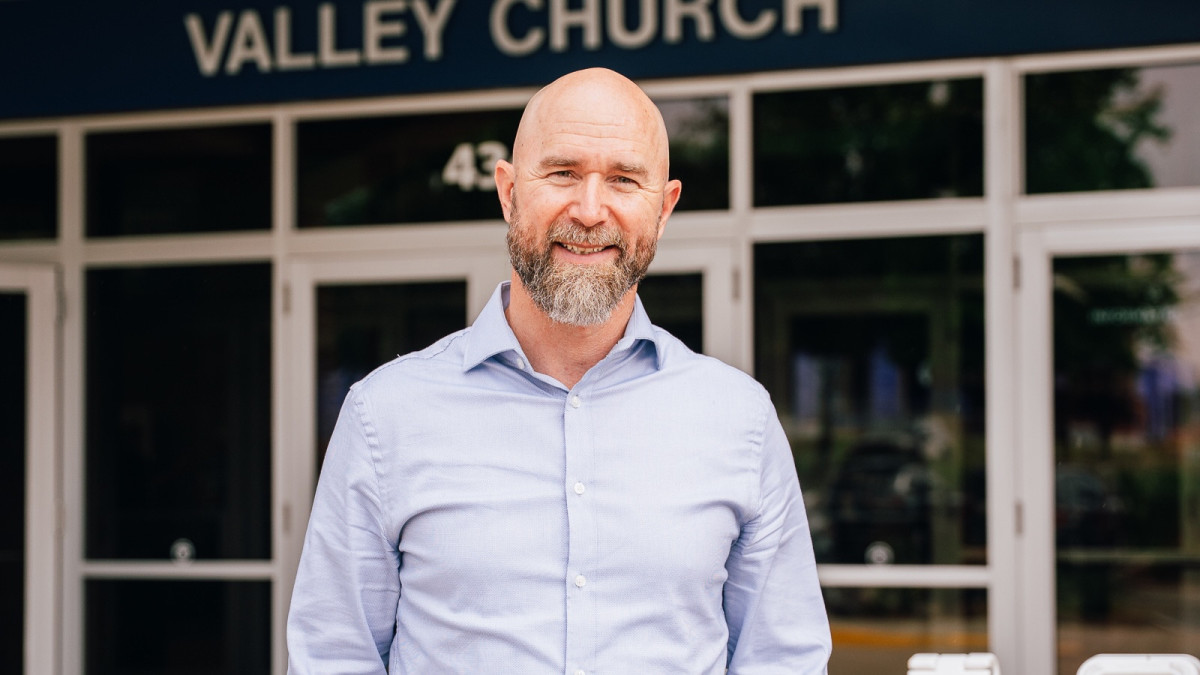
Scott Barber: God Sent Me on a Winding Road to Ministry
The new director of pastoral theology and care shares his ministry journey and how the gospel is the key to pastoral resilience.
In high school, my youth pastors decided to give an internship to an individual that they sensed God's calling on their life. They selected me during my senior year, and I experienced a burning passion and sense of calling. It got a hold of me. Even as a young man, then at 17, there was a clear conviction in my heart that the Lord called me to serve His kingdom and the local church.
The door didn't open for me into Bible college right away. I consulted with a local pastor about my winding route, and he said, “Study anything unrelated to ministry because it will better prepare you.” I did what was easy and natural; I got a degree in mathematics and physics.
In that time, the Lord allowed me to have ministry experiences. I did an inner-city ministry internship in North Minneapolis, and the Lord opened my heart to several things—a heart for the nations, the importance of cross-cultural ministry and pastoral struggles with reaching those with brokenness.
As I prepared for seminary, I noticed how pastors often have limited access to education in counseling and pastoral care. I sensed a conviction from the Holy Spirit saying, “This is not enough. I'm going to take you down an additional winding route to better equip you.”
There was something about the role that tugged on my heart—the opportunity to come alongside pastors and congregations. The gospel is the only thing that produces the resilience that everybody's looking for in this life, and that was pulling at me.
I got a master's in counseling through a local college in Kearney, Nebraska, and I personally focused my training in clinical counseling on pastoral counseling and ministry in local church. I practiced for three years as a licensed professional counselor and primarily did intensive family therapy. In that time, the Lord prepared me to enter pastoral ministry.
The Lord sent me and my wife back to Minnesota in 2008. I went to seminary at Bethel University, specializing in congregational systems and care. We waited for the Lord's call and Grace Community Church (EFCA) in Worthington, Minnesota came up. At the time, the church was in brokenness and need, and I had the privilege of being called to become part of their restoration.
Worthington has the highest percentage of minorities per capita in the state of Minnesota. It's a little town of 15,000, and the Lord gave us a heart for the nations. Lo and behold, this little town had over 70 languages spoken. The world is there.
Seeing God's work there over the last 14 years was not only seeing restoration and health and clarity of identity and movement, but also seeing the mission moving forward, seeing the nations reached and becoming one church with many languages. The church multiplied, and the Lord revitalized us. It's exciting and special to be a part of the Lord's calling in that way.
Then the EFCA North Central District superintendent reached out, asking if I would consider applying for the director of pastoral theology and care position at the EFCA national office.
Initially, I said, “No, it's too much, too big, not the right time for my church, not the right time for my family.” Still, there was something about the role that tugged on my heart—the opportunity to come alongside pastors and congregations. The gospel is the only thing that produces the resilience that everybody's looking for in this life, and that was pulling at me.
A week or so later another person reached out about the position and requested that I apply. We were hesitant, but my wife and I prayed about it, and we felt led by the Lord to apply. I wrote a paper during the application process, and it inflamed my heart to see the gospel applied to pastors in their unique needs. I felt pulled toward it, but my wife and I were convinced there was no way that God was calling a pastor from rural Minnesota to a national role. Of course, fast forward, and the Lord had different plans.
I’m excited and also intimidated. What's exciting for me is seeing us as pastors not inhibited by shame but seeing a movement of the gospel of grace moving forward, together in community, breaking through the barriers of shame. Our brokenness can be a means for the gospel to transform our congregations. When we lead out of our brokenness, we make much of Jesus. We can show our congregations how to encounter Christ in the everyday spaces of our mess and invite them into that rawness of encountering Christ in our brokenness. That's where transformation happens.
Send a Response
Share your thoughts with the author.